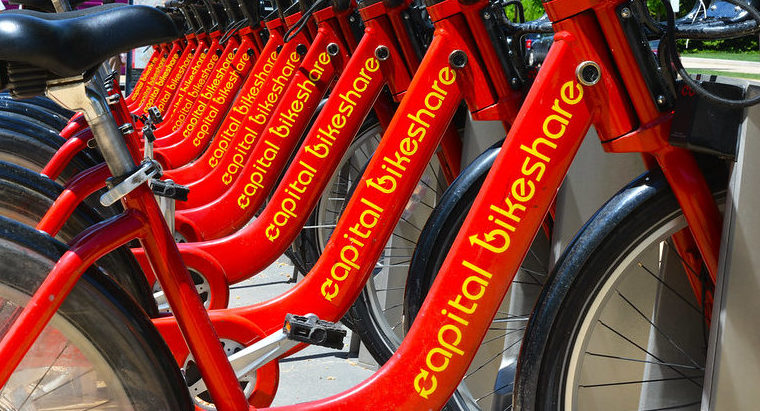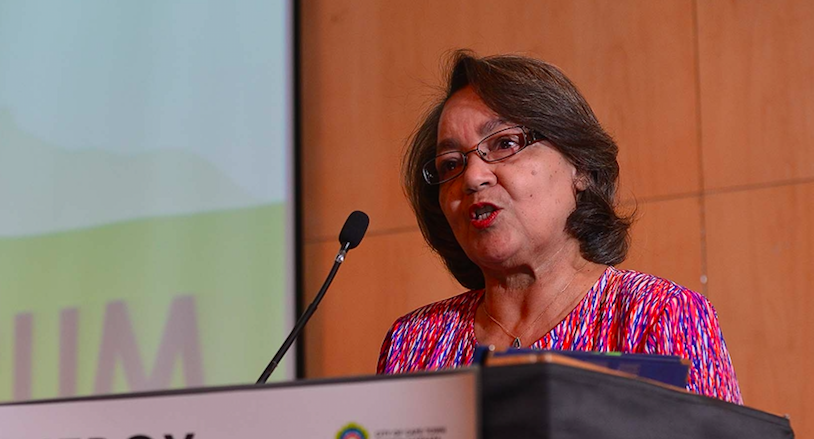
Photo: Screen-Shot-2016-07-02-at-18.22.10
Interview: Patricia de Lille, Mayor of Cape Town
15 June 2016
by Jonathan Andrews
What have been your biggest challenges in your first term in office?
The wheels turned too slowly in government. We had to inject some urgency by changing the methodology of planning so that we could speed up delivery.
There was a silo mentality and we adopted a transversal management plan where we integrate our work across departments. In terms of maintenance of old infrastructure and building new infrastructure–we had to share our capital budget between new projects (60 percent of our capital budget) and maintenance of old infrastructure (40 percent of the budget).
I also established a strategic policy, monitoring and evaluation unit in my office to monitor the administration and track our delivery and progress more effectively.
There was also a disconnect between creating investment and new development and this led to establishing a trade and investment desk in my office to act as a one-stop shop for investors and developers looking to invest in Cape Town.We also repealed more than 270 outdated policies and by-laws so that we could move from a ‘red tape’ to a ‘red carpet’ approach.
The city has set a target of sourcing 10 to 20 percent of its energy needs from renewable sources by 2020. What plans and projects are in place to achieve this?
We are working very hard to diversify our energy mix by procuring energy from Independent Power Producers (IPPs) at a lower cost than what we are paying for electricity from the monopoly state-owned enterprise, Eskom.
We have changed our approach from merely being distributors of electricity. We now want to become energy generators as well.
We are also the first city in South Africa with a feed-in tariff for businesses and households who are generating their own electricity through photovoltaic (PV) panels and want to feed excess electricity into the city’s grid.
This allows household and businesses to play a part in providing the solutions to our energy shortfalls while building local resilience for the future.
We have signed small-scale embedded electricity generation contracts with 30 major commercial industrial customers who are able to feed electricity into the city’s grid.
We are also engaging the national government on building our own renewable energy plants, purchasing directly from Independent Power Producers (IPPs), and bringing natural gas to the Western Cape.
In diversifying our energy mix, we are also exploring the possibility of building a gas power station, looking at hydro-electricity, wind and solar.
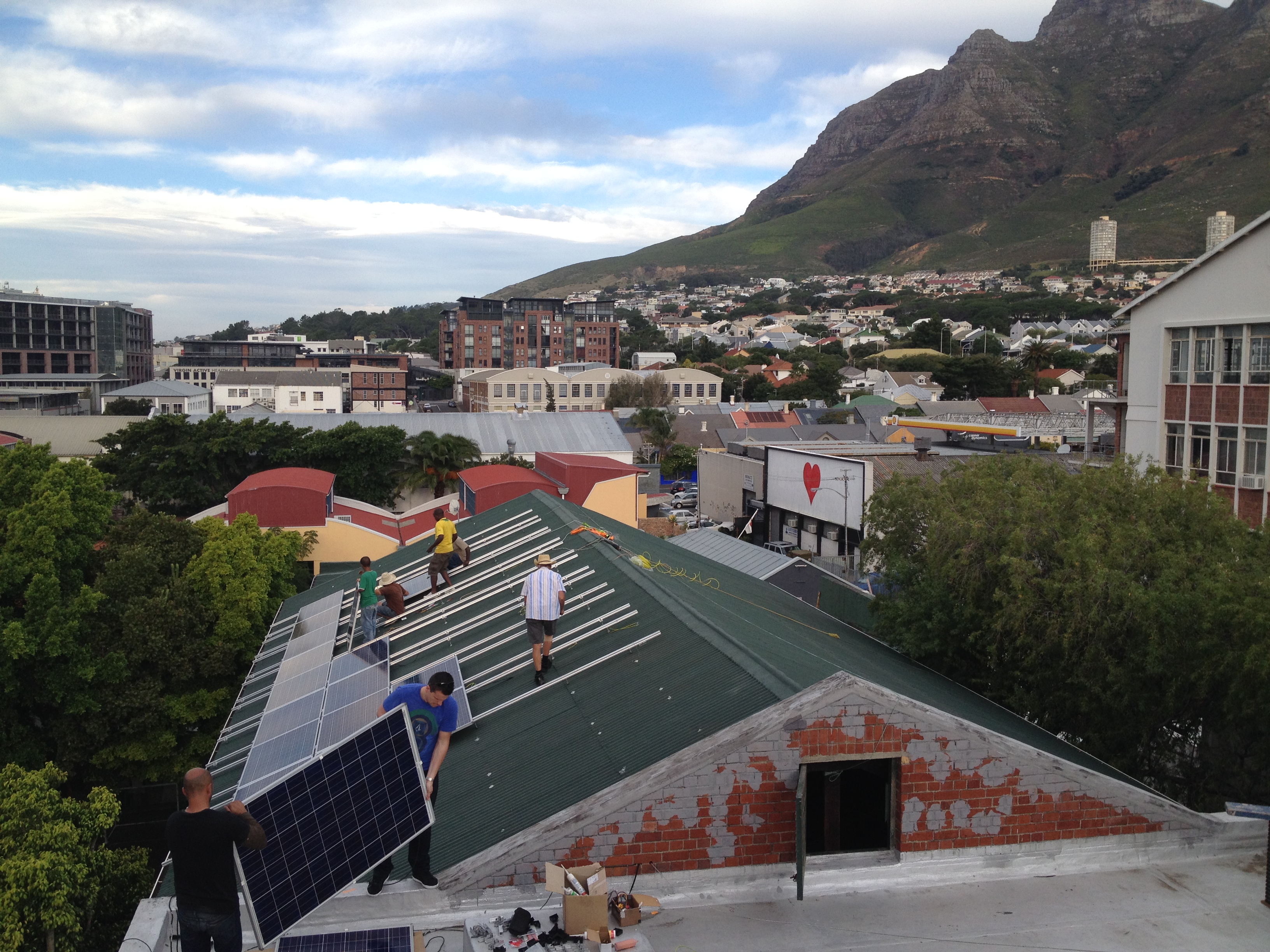
Cape Town was one of 10 winners of the C40 awards held in Paris during COP21 for its Water Conservation and Demand Management (WCWDM) Programme. How did this idea come about and how was it developed?
Cape Town lies in a water scarce region and options to increase the city’s water supply are limited and extremely costly. Water demand was growing faster than population growth before 2000 (due to economic growth and improved service delivery) and the city’s population increased by more than 30 percent between 2001 and 2011.
Cape Town’s water scarcity is compounded by climate change risks as medium-term predictions for the region include reduced rainfall, higher average temperatures, increased wind speeds, higher evapotranspiration rates and an increased likelihood of drought.
The importance of water demand management was recognised in the mid-1990s and the first water demand management projects were introduced around 2000. Since then, the City of Cape Town has taken a proactive and long-term approach to water management with the adoption of the comprehensive Water Conservation and Water Demand Management policy and associated ten-year implementation plan.
How closely do you work with cities internationally? Does a formal network like C40 help?
Membership of, and participation in the activities of networks such as C40 can only be regarded as adding immense value to the city. Such membership(s) provides the city with an opportunity to showcase itself on a global stage and to exchange knowledge with and gain knowledge concerning international best practices with like-minded cities.
I really value C40 for the critical role it plays in connecting cities and mayors who are leading the way in addressing climate change. In C40, we are connected to mayors who aren’t discussing commas and brackets but who are talking about actual tangible projects that can be and are ‘actioned’.
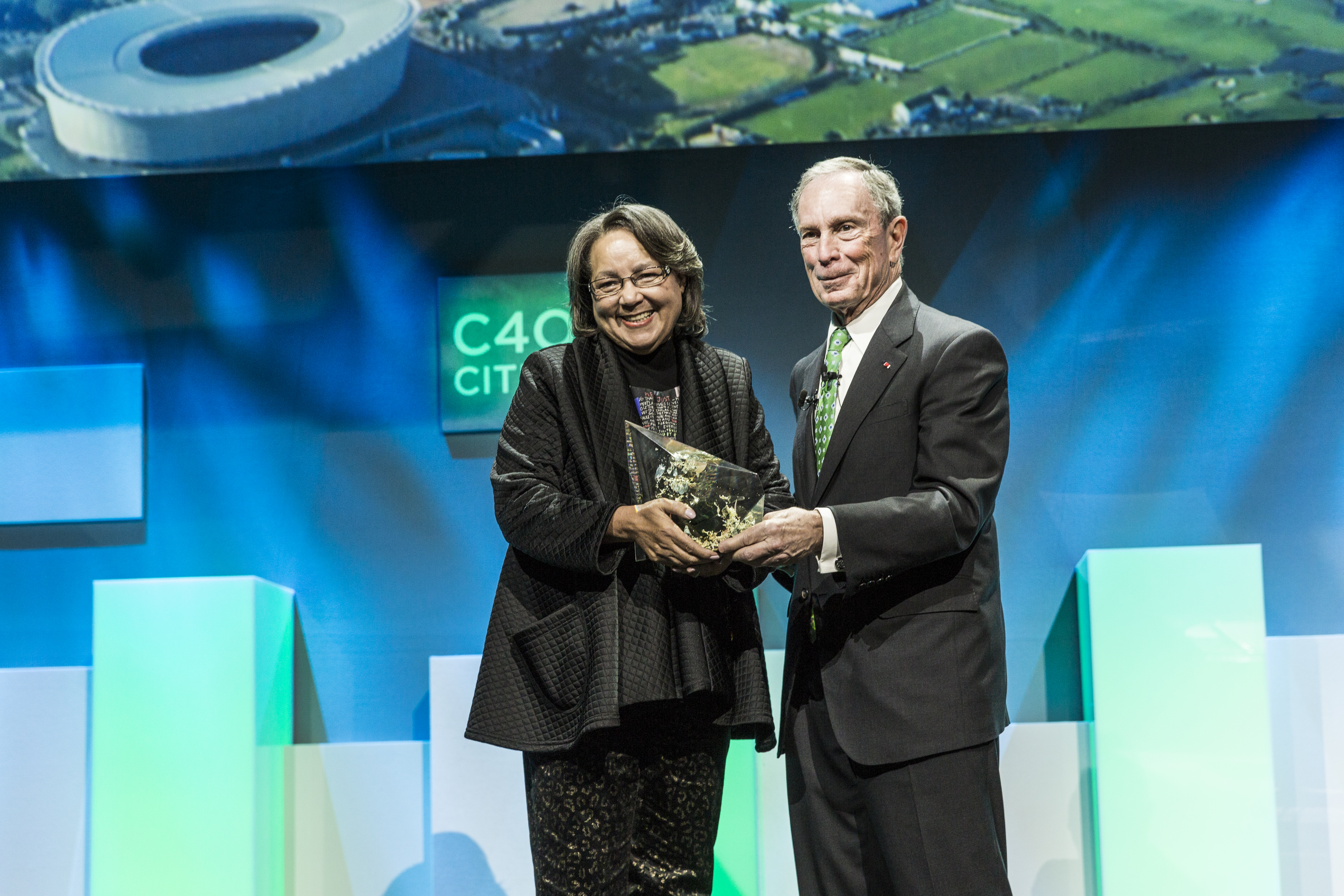
As a member of the Global Lead City Network on Sustainable Procurement, the city issued tenders for the procurement of electric buses for its Bus Rapid Transit (BRT) in February. Is Cape Town on course to be the first African city with an electric bus fleet?
Yes, we are on track to become the first city in Africa to use electric buses for public transport. Because the transport sector is one of the greatest contributors to carbon emissions, we are looking at electric buses as a way of significantly reducing our emissions in the long-run.
Another way we are looking to reduce carbon emissions, is by enticing more people to use public transport and out of their private vehicles by installing Wi-Fi on our buses so that we can reduce the number of cars on our roads.
In the past 25 years how has Cape Town advanced to overcome apartheid and the spatial division that involved? How has the anti-racism campaign which you launched in 2015 been received?
In terms of overcoming the apartheid spatial planning division, we have done the following:
Our Transit Orientated Development plan seeks to develop along major transport corridors across the city so that we bring economic opportunities and business hubs closer to people across the city.
We have also successfully rolled out our MyCiTi bus rapid transit (BRT) system which is providing commuters with affordable, quality and reliable transport to connect them to economic opportunities.
The City of Cape Town has developed a densification policy to prevent urban sprawl and bring people closer to opportunities.
Cape Town has one of the highest rates of urbanisation in the country and we have to look towards the future. We are living in a dynamic city; the face of Cape Town is changing. No large city is immune to the pressures of urbanisation–from Boston to Cape Town to Seoul. As an administration, our ability to deliver effective services is advanced through the simulation of a CBD [Central Business District] which is more commuter friendly, more compact, more efficient in its resource usage, and more integrated.
The Inclusive City campaign has been welcomed by residents across the city and has been supported by anti-apartheid stalwarts, Ahmed Kathrada and Archbishop Emeritus Desmond Tutu. We are hosting continuous dialogues across the city so that we
can have these difficult conversations about racism, how it affects us and how it is preventing us from realising an inclusive city. We are educating people about their rights because if they know their rights, they will know that they cannot be discriminated against and they will ensure that they take the appropriate action to bring an end to racism.
We are mobilising the majority of people who are not racist against the minority who are racists to condemn racism and say: “Don’t let racists speak for you.”
It is therefore critical that we continue rolling out this campaign. We need to make sure that people know their rights, and know that racism has no place in our city.
Cape Town is a city for all. Everyone should feel a sense of belonging and that the city belongs to them.
Johannesburg was the first African city to issue green bonds for infrastructure development. Is this a path Cape Town would like to follow? How are you overcoming obstacles and challenges to municipal finance?
For future energy needs, the city will consider green finance through the issuing of green bonds. As demonstrated by our consistently high credit rating (Moody’s have rated us A1 as recently as February 2016) we are quite capable of raising debt to finance infrastructural development through many avenues when the need arises. Our standard approach to the challenges of raising finance is to continue exercising fiscal prudence and applying sound financial management practices across all our activities.
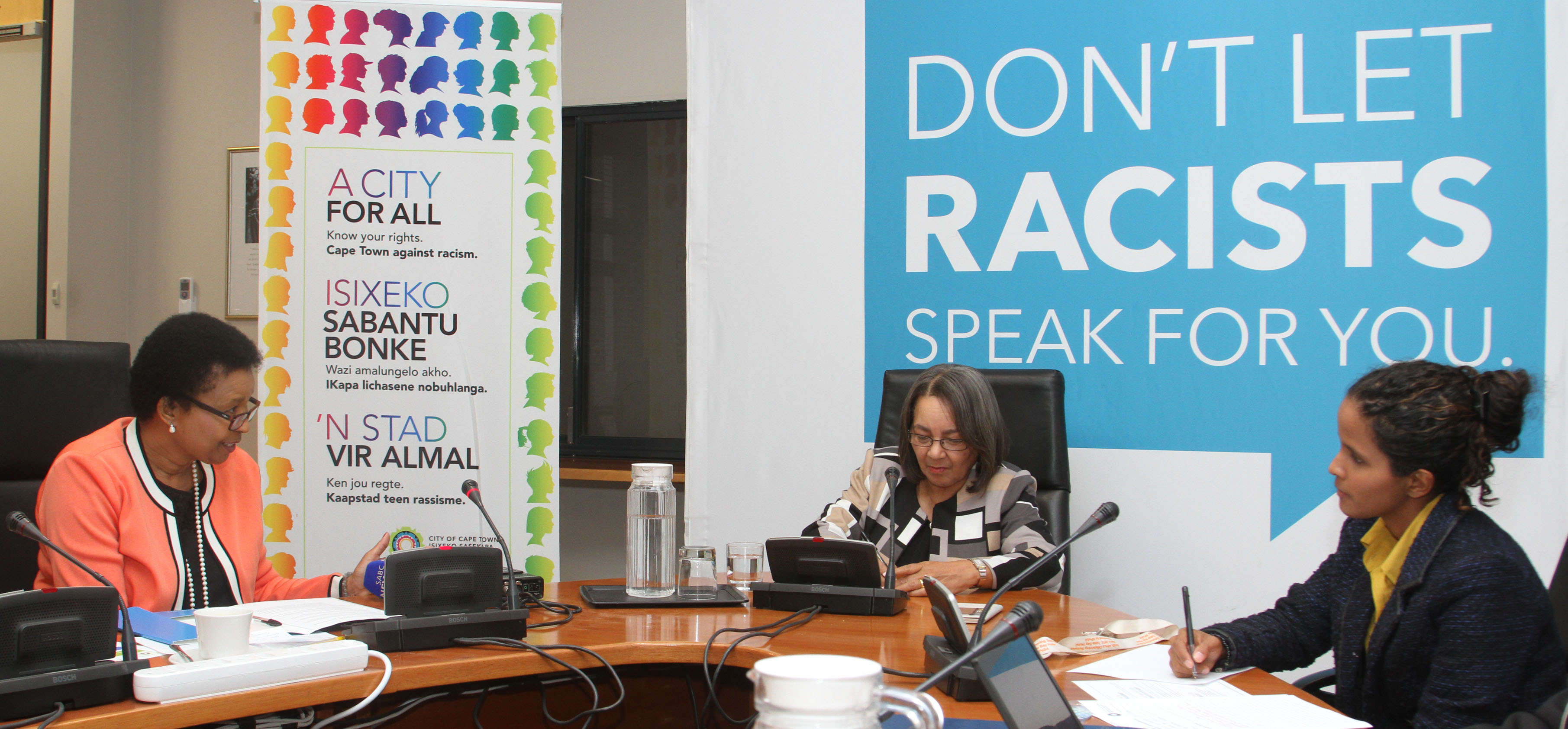
Cape Town is the largest growing city in South Africa. Can affordable housing be provided at a fast rate without offsetting your pursuit of energy savings? How are you helping those living in informal settlements to adequate housing?
Because of urbanisation and being the fastest growing city in the country, it is not always possible to provide housing to everyone in our city. Government has a responsibility to provide housing to those households who earn 3,500 South African rand [US$230] a month or less.
People who therefore earn more than 3,500 South African rand a month, need to approach the private sector for housing finance. We also see the goals of providing sustainable housing opportunities and reaching our energy goals are mutually compatible so what we are looking to do is incorporate energy efficient measures in future housing builds as well as through programmes such as the ceilings retrofit incorporated into old houses. We are also looking at a special energy efficiency programme that is directed specifically at low-income households with the result that it will bring down energy costs in those households and energy consumption as a whole.
The city is in the process of upgrading various informal settlements through the Upgrading of Informal Settlement Programme, UISP, which aims to deliver serviced sites and better living conditions by upgrading the engineering infrastructure and the road network.
People residing in informal settlements which are registered on the Housing Database can also benefit from a formal subsidised housing project implemented by the city.
The city also provides a lending hand to all types of disaster emergencies like fire kits after major fire incidents and flood kits for flood conditions.
Cape Town has rolled out portable flush toilets to slums to improve sanitation but faced criticisms about a lack of dignity and that it is a “poor person’s” solution with many demanding fixed flush toilets. How do you strike a balance between the two conflicting demands?
Our access to sanitation is the highest in the country but because of various constraints in providing full flush toilets, we are forced to use different types of sanitation for different conditions where the city cannot provide full flush toilets such as: where informal settlements are in a water retention pond, where informal settlements are on privately-owned property, under power lines, on landfill sites, in a road or railway reserve and on floodplains. These are the constraints and conditions for when we provide other forms of sanitation.
As a mayor, how difficult is it to work with a national government which is of a different political party?
We are fortunate that we have a constitution which prescribes the relationship between the three spheres of government: national, provincial and local government.
In Cape Town we have a proven track record on clean governance, no corruption and delivering better services than any of the cities run by the ruling party. We are a clear example of how to govern.
In March, Cape Town signed the OECD’s and Ford Foundation’s Inclusive Growth in Cities Campaign. What does the campaign seek to achieve and what role will Cape Town play?
The aim of the campaign is to provide mayors with a unique platform in the global debate on inequality, enabling them to share their voices and perspectives. The campaign will also facilitate the exchange of concrete solutions to inequality and empower local governments as leaders in the transition towards more inclusive growth. Thus, it will help local governments to analyse rising inequalities, monitor material living standards and the broader well being, and design policy packages that promote equity and growth.
Keeping this in mind, I have committed to make a concerted effort to robustly address issues commonly associated with inequality. These include, but are not limited to, rising social and economic inequalities, inadequate quality of services delivered, fragmented labour markets, and non-inclusive institutions because these issues challenge the capacity of cities such as Cape Town to grow inclusively, allowing all people both to contribute to and share in rising prosperity.
If you win a second term this year, what will be your priorities for the city?
I will continue my priorities based on five strategic pillars and those are to build:
• An inclusive city
• An opportunity city
• A safe city
• A caring city
• A well-run city.




